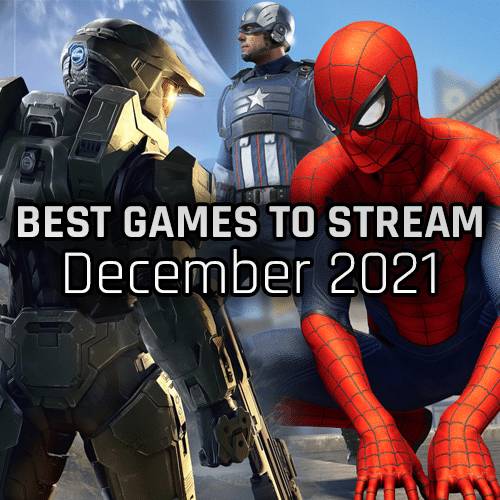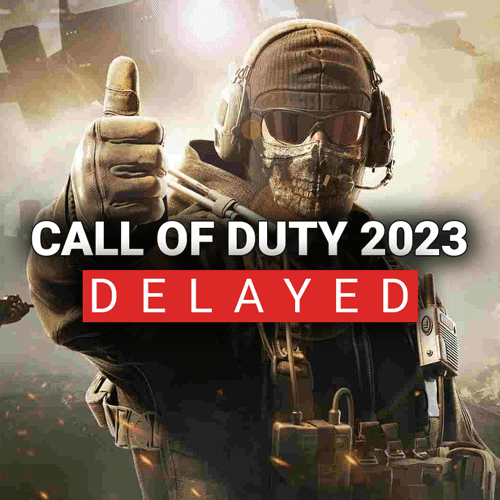One of the staples of any October or November for FPS players is the annual launch of a Call of Duty game. Every year since 2003, there has been a new Call of Duty launched. But we might very well be seeing the end of annual releases as, per Bloomberg, Activision Blizzard is set to not release a Call of Duty title in 2023.
BREAKING: Activision will not release a new Call of Dufy game in 2023, delaying it by a year
— CharlieIntel (@charlieINTEL) February 22, 2022
This year’s new Modern Warfare game will still release this fall, with next year being a year off.
Source: Bloomberg
But what would cause the massive FPS giant of Call of Duty to delay out a release and large sums of money, especially after the lackluster response to Call of Duty Vanguard? Let’s break it down.
The Community Wants Quality
It’s clear that over the years, Call of Duty has traded quality for quicker development cycles to keep the annual releases going. In fact, Treyarch had to take over development from Sledgehammer Games in 2019 because they weren’t able to hit the deadline for a 2020 Call of Duty release.
The lack of quality in Call of Duty games have been super prevalent over the last couple years. As of December 2021, Call of Duty Vanguard had 200+ bugs reported on it’s subreddit and it took Sledgehammer until mid-January to address a small portion of them. Aim assist, which helps controller players keep their aim on a moving object, was broken until just this month. Even the maps are able to be glitched out of.
The question has been asked why individuals would want to buy a game for $60-70, when its clearly being shipped as a beta. Content creators like BlameTruth and 402Thunder402 have even went as far as to play older Call of Duty titles for over a year, boycotting the newer title entirely because of the issues.
The community has been saying for years that they want Call of Duty to stop the annual releases and ensure a better product is provided. Even EA’s Battlefield 2042 is seeing backlash after a buggy launch, months of hype, and even a delay in launch to get the product out.
When compared with polished titles like Halo: Infinite that launched to great praise from the community for its lack of issues, it’s clear why players are moving on from Call of Duty titles that are underwhelming for the amount they charge.
Call of Duty Is On a Downward Slope
One could argue that Call of Duty has put out generally decent games in its near two decade long annual release cycle. We got some amazing titles like Call of Duty: Modern Warfare 2 and Call of Duty: Black Ops 2, but we also got Ghosts and Infinite Warfare. All in all though, Call of Duty has been on a downward spiral since Black Ops 2.
This inconsistency has pushed individuals toward other FPS titles like Destiny, Battlefield, and Halo. Just last year, Call of Duty saw a 40% decrease in UK sales (one of the only places where sales data is available) for Vanguard compared to Black Ops Cold War.
Part of this was due to the lackluster response of Black Ops Cold War, which failed to really set itself apart for 6 months out of its 12 month life cycle. But on the other side of things, the developers have done very little to move the game forward in an exciting way. Sledgehammer created another WW2 based Call of Duty for Vanguard, which was already done 4 years prior by them with Call of Duty: WW2.
The community is just no longer interested in the title and Activision’s studios aren’t providing the quality and innovative ideas to keep people coming back.
Free to Play is Taking Over
The launch of Call of Duty Warzone, Call of Duty’s battle royale, was a huge eye-opener for Activision Blizzard. After just 13 months of its launch, Warzone went from 6 million players to over 100 million. With it being free-to-play AND a Call of Duty title, the barrier to entry on a AAA title was almost 100% eliminated.
Players could now drop in with their friends without spending a dime, which was super convenient. By offering this free experience upfront, Activision Blizzard quickly found out that players were more willing to spend $20 on some skins, which assisted in them raking in $1.2 billion in microtransactions in Q3 of 2021. They could also entice people to try out their “mainline Call of Duty title” with free-to-play weekend events or deals right from the Warzone menu screen.
The premium and free model was a hidden gem for Activision Blizzard, and it’s clear that it’s staying. In the report on delaying Call of Duty 2023, Bloomberg also reports that another free-to-play title will be launching next year, separate from Warzone.
Breaking: Bloomberg says Activision to release another free to play Call of Duty title next year – which sounds separate from Warzone pic.twitter.com/eBppJuw1Ro
— CharlieIntel (@charlieINTEL) February 22, 2022
By having these free-to-play experiences around, Activision Blizzard can use them to provide updated content, drive more microtransactions, and give their development team more time on the main Call of Duty title. All of this spells out an increase in quality and a huge bag of money for Activision and its studios.
The idea that Call of Duty will be delayed after this year’s title is surprising, but also expected. The community has spent years complaining about the state of the game and Vanguard’s abysmal numbers are probably concerning Activision into the decision.
However, with more free-to-play titles coming into the fray, along with the successes of microtransactions, Activision Blizzard might be set up to get the main Call of Duty title back to its former glory, while also securing the bag in the process.
What do you think? Is Activision Blizzard taking the right steps to get Call of Duty back on course? Or was the damage done and nothing can save it? Let us know in the comments down below.










